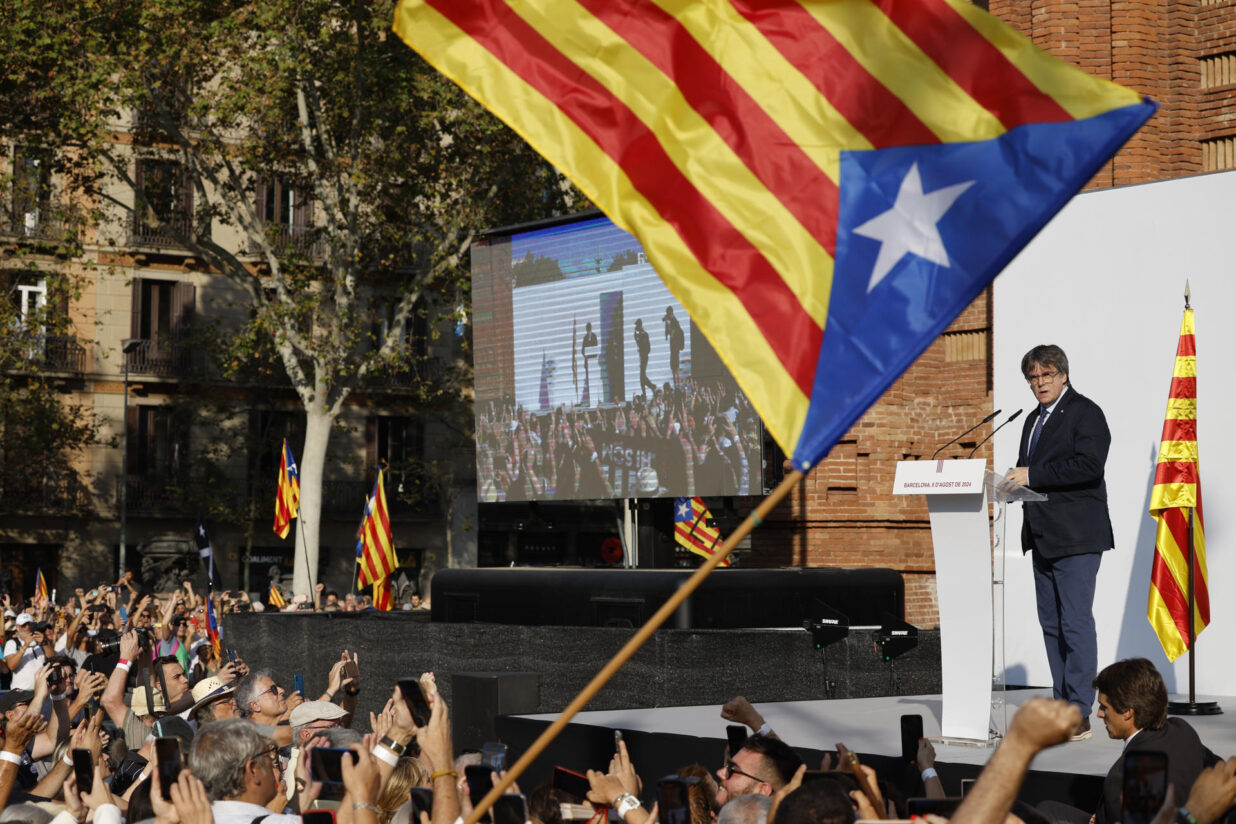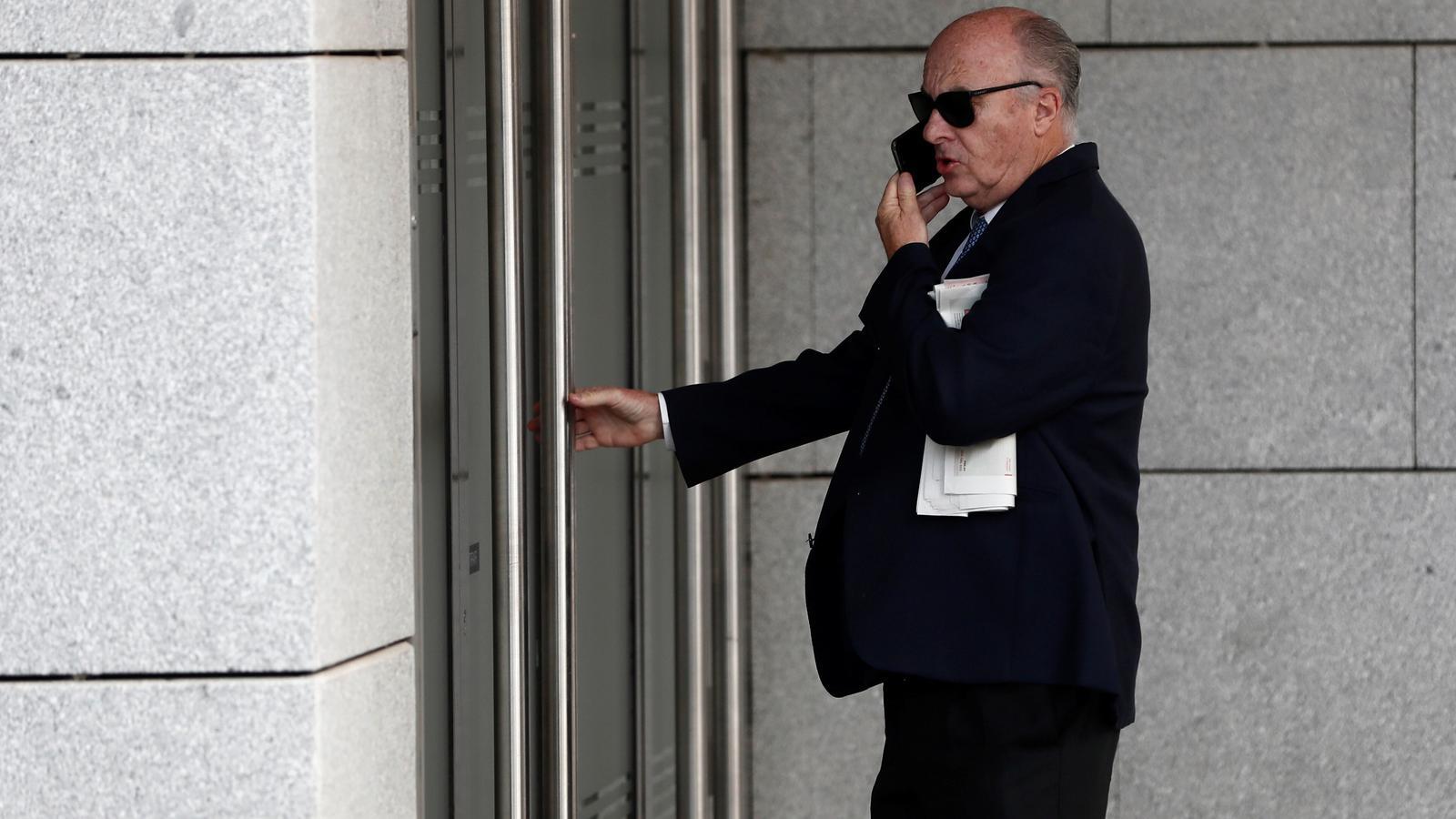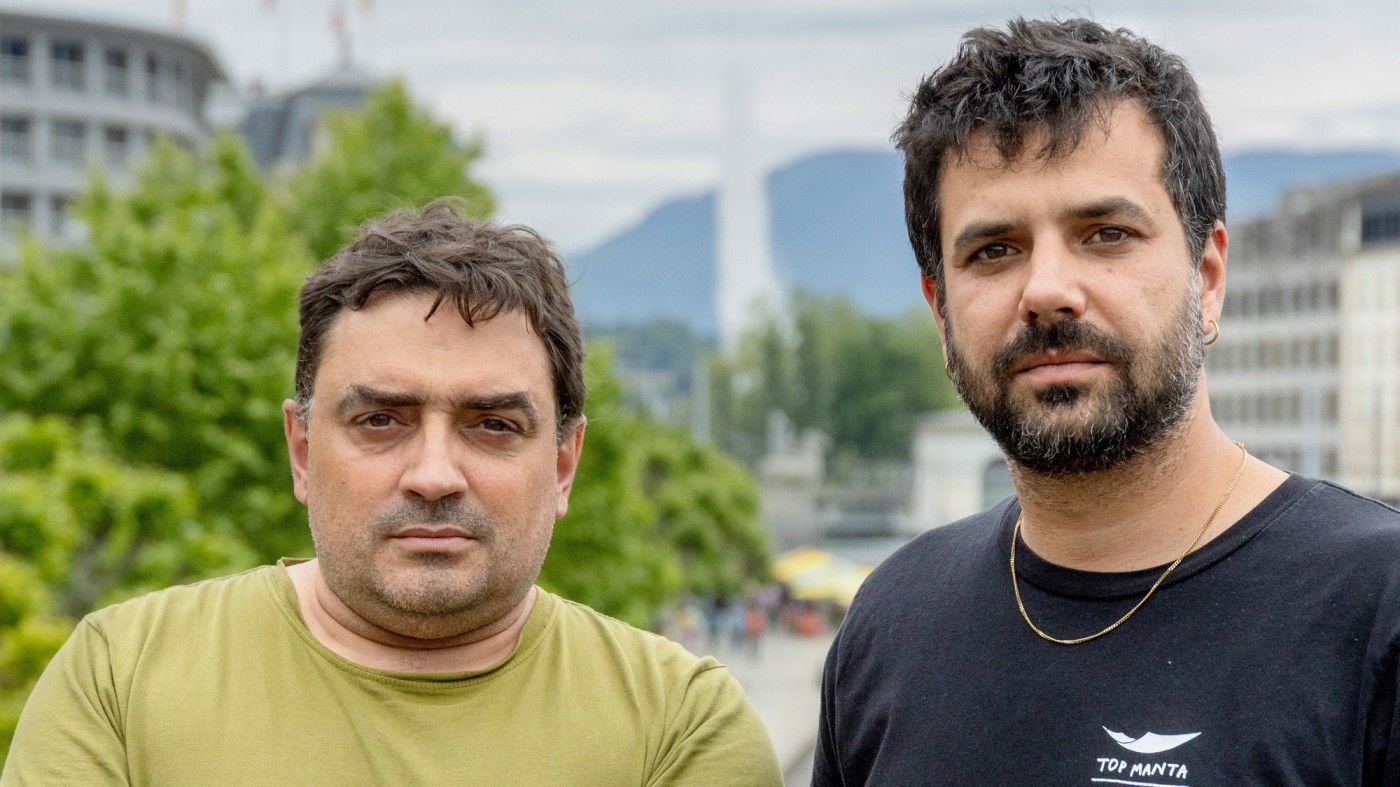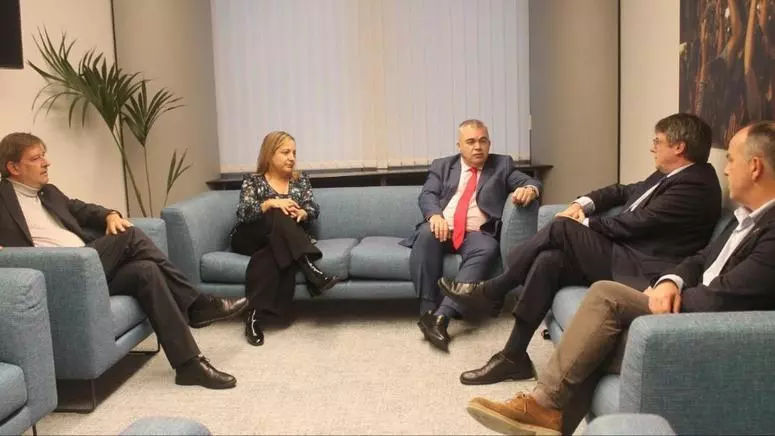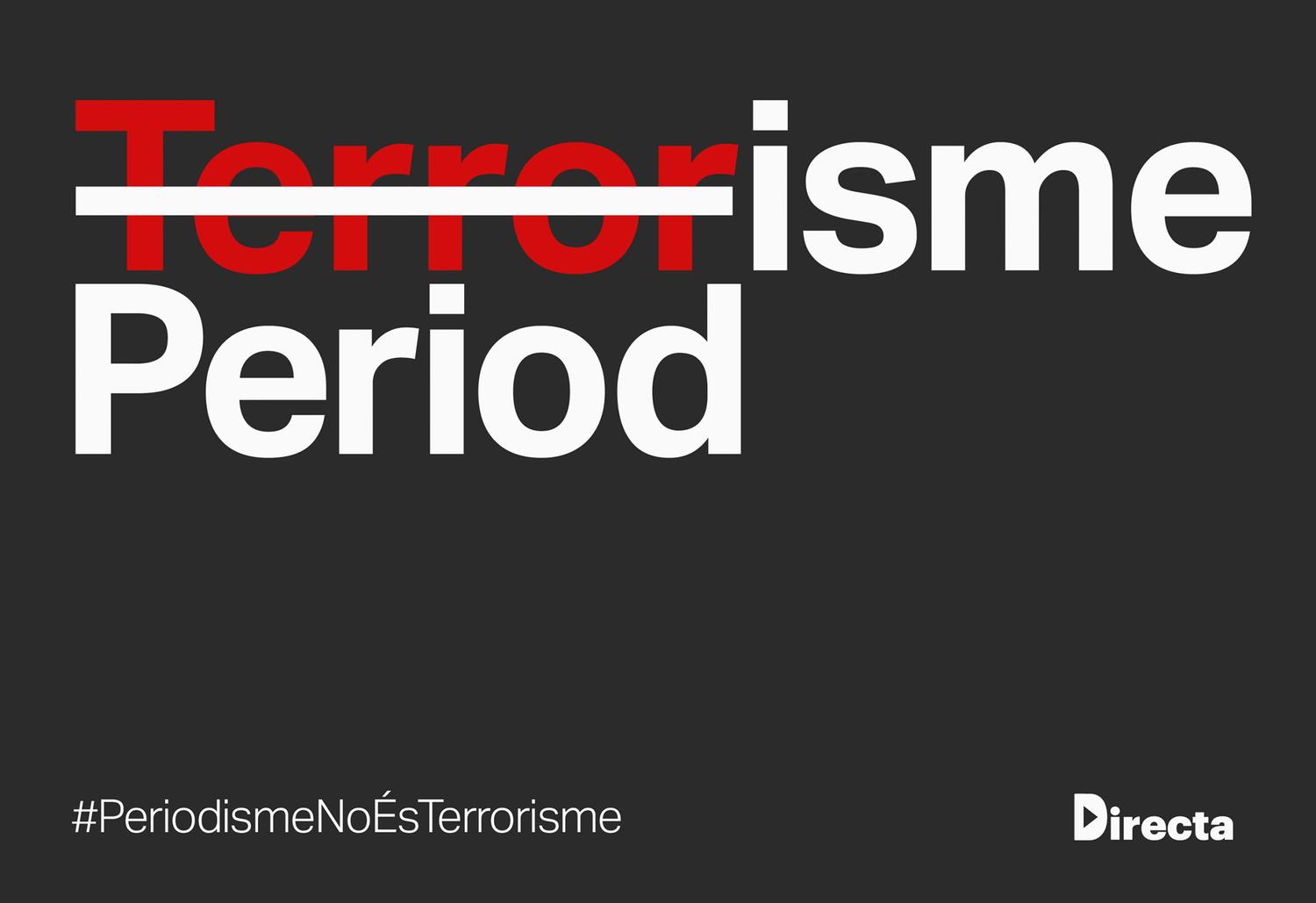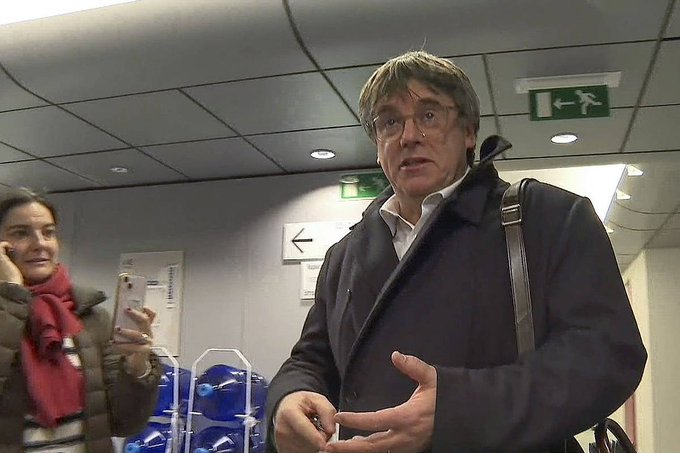"It was essential to stretch the rope"
- On the order of Judge Carmen Lamela, Jordi Turull, former Presidency Counsellor and Attorney of the Generalitat, was arrested on 2 November 2017. He was released on 4 December of the same year and, after being a candidate for the presidency of the Generalitat, was imprisoned by Judge Pablo Llarena on 4 July 2018. We spoke to the oldest daughter who followed the case, Laura Turull (Barcelona, 1997).
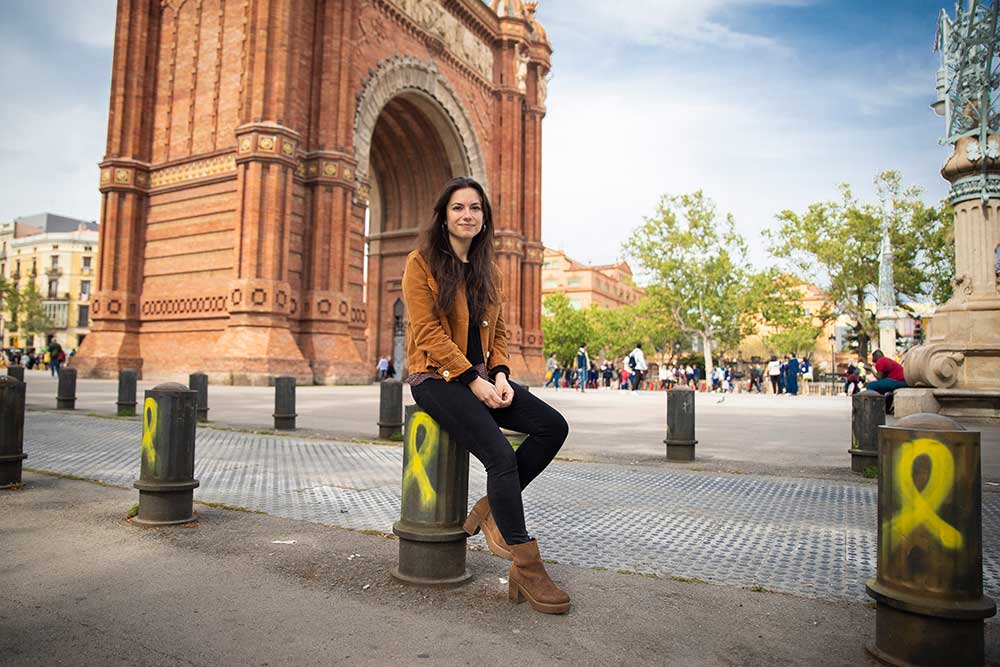
After his admission to prison, the father went from being a candidate for the presidency of the Generalitat of Catalonia to being imprisoned. How did you experience it?
It was certainly the hardest time for me. After leaving prison, when I learned that I was a presidential candidate and that Llarena had called to testify, I called him on the phone and we fought. In the afternoon there was a meeting and I was sending messages, over and over again, asking you to abandon politics. I knew if he was incarcerated, he wouldn't be spared. I confess, I did wrong.
How has family incarceration affected you?
Well, like other families, we've lived ups and downs, and at first, though I understood the importance of context, I struggled to understand the price my father paid. When the trial started, I turned it around, because I don't want to be bad every day, that has helped me understand my father's struggle.
Have Catalan political prisoners gone too far?
Anyway, it's a trap for the lonely. On 1 October we hit the table to say that we are not going to move until we have an agreed referendum. It was absolutely necessary to tighten the rope. I do not want to think whether they have gone too far.
The day after the proclamation of the Republic, the common strategy was broken until then: Puigdemont and other politicians were exiled and his father and others stayed in Catalonia.
I've thought about this a thousand times, and I've always drawn different conclusions. After all, exile would not be understood without prison: if everyone had left, we would never know what the response of the Spanish State would be. Both have been compatible.

How has your relationship with your father changed the prison?
Before I got into jail, I talked to my father every time I needed something, and now I lack that protection. I have the feeling that my father has been robbed. It is very difficult to maintain the relationship in this context.
How has the trial lived?
I had to leave behind the phase of preventative incarceration that lasted for a year and a half and start the trial. The Prosecutor’s Office, which has to seek the truth, has not done so, because when asking questions it became clear that the main challenge was to ratify its vision.
Some people think the sentence is written ...
Well, I also claimed that the sentence was written at the beginning, but after the trial and taking into account that the sentence is written within what has happened in the room, I find it hard to believe it. How will the seven judges justify the crime of rebellion? From the glances of hatred? For example, if that is violence, in any demonstration we will all be at risk… If the sentence is written, lawyers have made it difficult to present it.
Looking at the history of Spanish justice, do you worry about the harshness of the sentence?
Of course, all we have to do is look at the case of the young people of Altsasu. This issue has opened my eyes: so far I did not know to what extent the manipulation of the Spanish State and the media was worrying. Of course, looking at his sentence, ours may also be tough. As things have gone, I would say that each of the prisoners will be sentenced to between eight and ten years in prison.
What was your relationship with repression before my father entered prison?
I fully regret not being aware of the gravity of the repression. I am disappointed, seeing the people who are currently manipulated in the Spanish State, thinking about how many times I have been so. At first I was scared, then I was sad and now I felt aggressive.
The mobilization of Catalonia is unprecedented, but is the people willing to leave Catalonia if the sentence is accusatory?
I hope and hope so, but I do not know. Now we cannot leave them alone, if they are in prison it is because the people have proclaimed the referendum. I do not even want to imagine that scenario, I have the full confidence of the citizens.
Learning the right, how do you experience the dichotomy between justice and reality?
One thing is justice and the other is power. As I studied law, I understood that in Spain power has the right to go beyond the rules of my profession and to decide what I want. Spanish justice itself has withdrawn the quotation presided over by the National Court. I am disappointed with the trial of Catalan politicians, but also with the cases of the young people of Alsasua or La Manada.
to change “I decided to study law because I think great things can be achieved with small actions. Even though my father's incarceration left me torn apart, what I had lived at home motivated me to finish my studies: Thanks to the case against the imprisoned politicians in Catalonia, I have read and learned a great deal, and I have done an intensive job of constitutional and criminal law. With the imprisonment of my father and other representatives, I have reiterated my desire to be a lawyer to protect rights and ensure that nothing else is repeated.”
Walk from a train station, two friends and a hug. This hug will be frozen until the next meeting. I'll come home, he'll stay there. There, too, will be free the painful feeling that injustice wants us to catch. Jesús Rodríguez (Santa Coloma de Gramenet, 1974) is a journalist,... [+]











